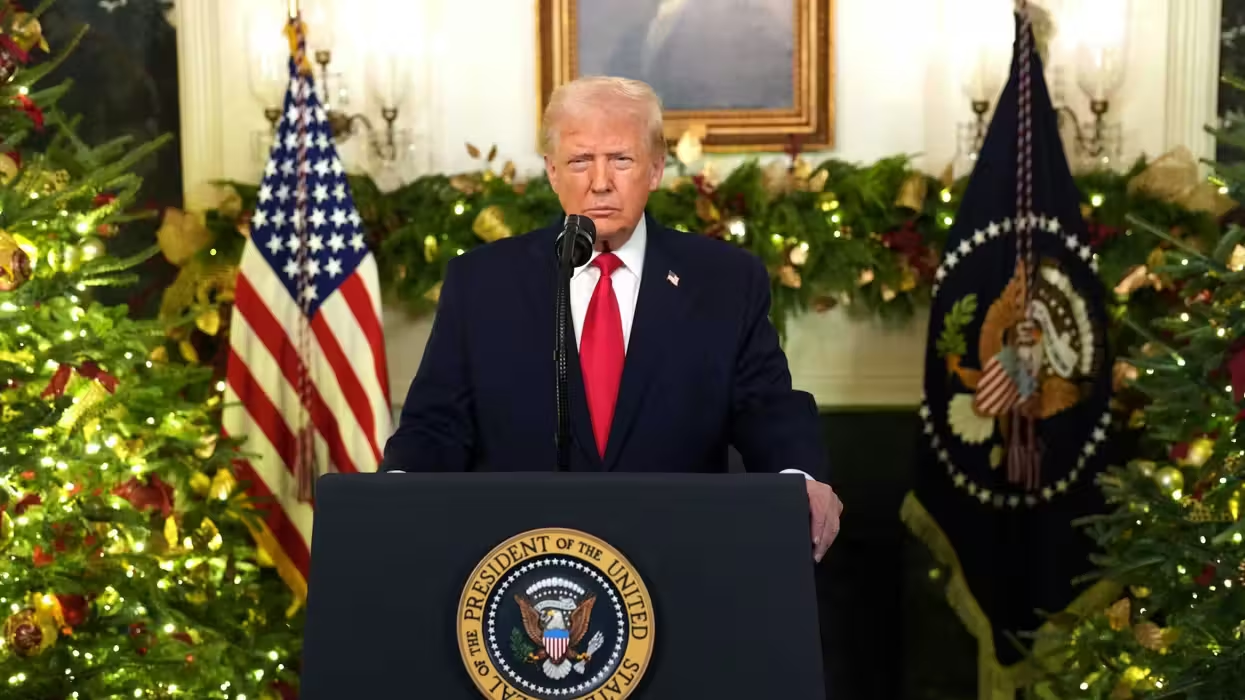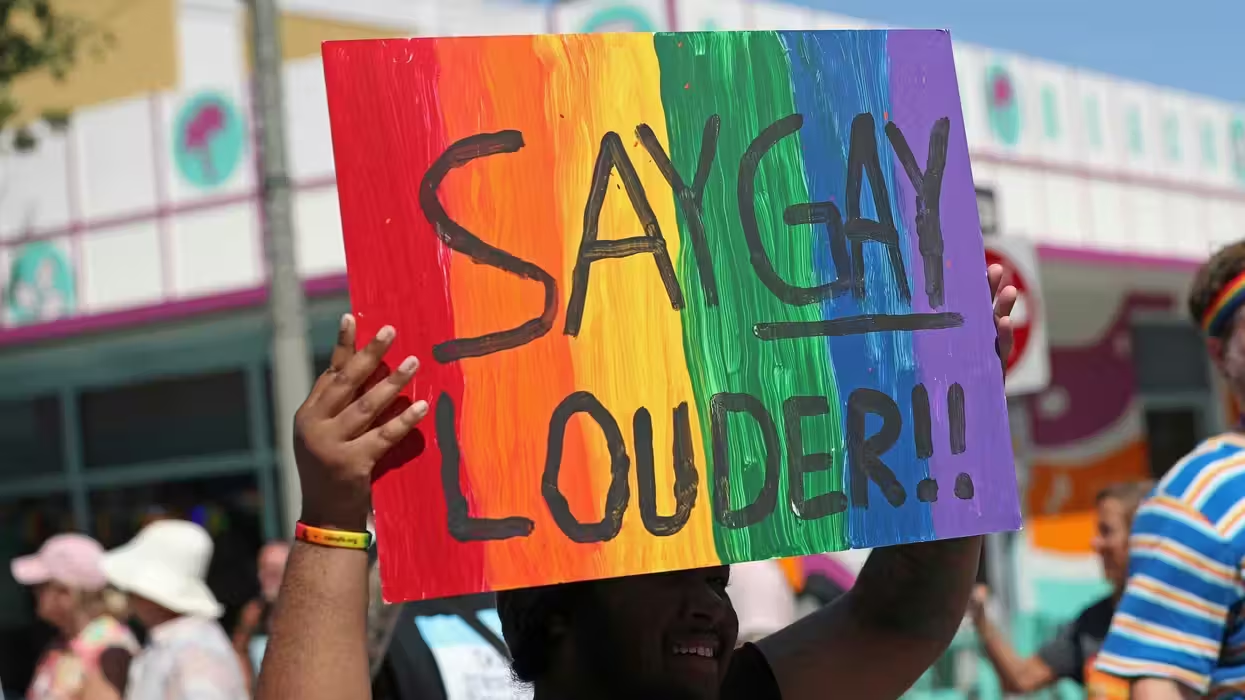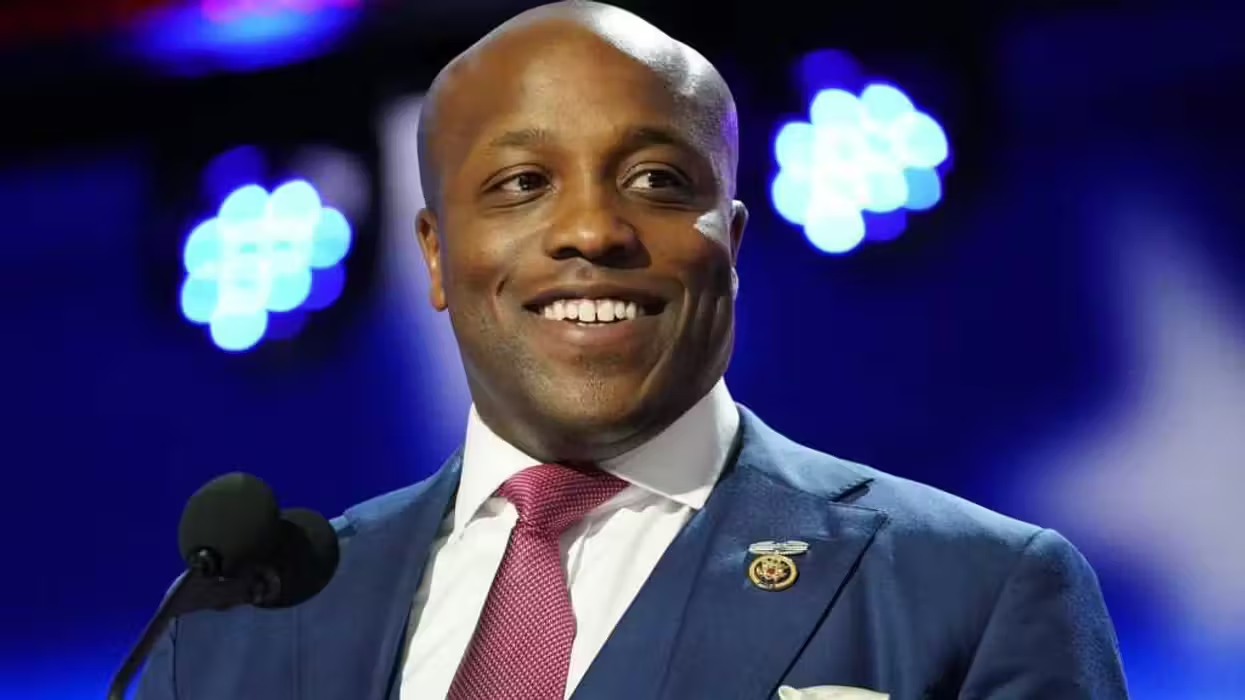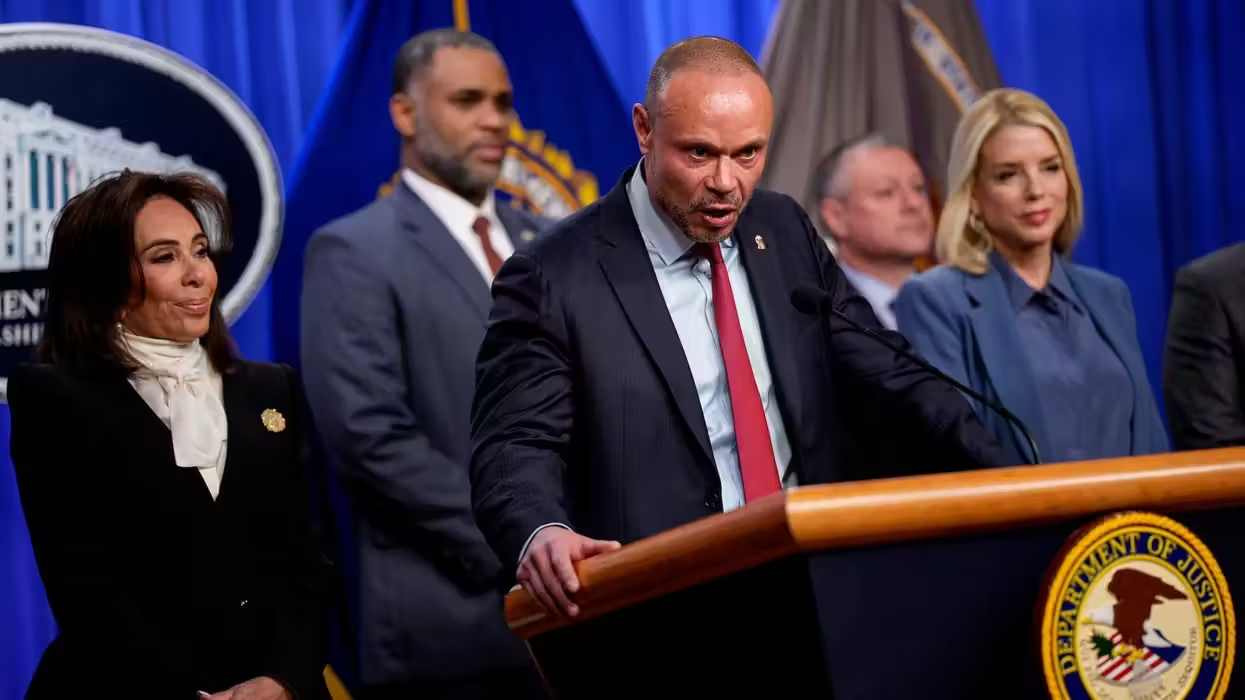
© 2025 Blaze Media LLC. All rights reserved.
Pete Buttigieg once said that the framers of the Constitution 'did not understand that slavery was a bad thing.' Here's a reality check
December 31, 2019
Fresh off the Christmastime criticism of his "Jesus was born a refugee" take, 2020 Democratic presidential candidate Pete Buttigieg is back in the news with another demonstrably false historical hot take: The framers of the constitution didn't know slavery was bad.
Even worse, he made the remarks to a group of children, in video posted Monday at the Washington Examiner's Twitter page.
The framers "were wise enough to realize that they didn’t have all the answers and that some things would change. A good example of this is something like slavery – or civil rights," Buttigieg says in the video clip. "It’s an embarrassing thing to admit, but the people who wrote the Constitution did not understand that slavery was a bad thing and did not respect civil rights.”
The Twitter account Resist Programming said that the clip is from Buttigieg's appearance on a children's television program in 2014. But whether made in 2014, 2019, or 2099, the argument being made here is just simply wrong.
Perhaps the blank stares from the children in the video were because the kids actually paid attention in U.S. history class. Then they'd know that the question of slavery was one of the most hotly contested issues at the Constitutional Convention of 1787. By July, James Madison wrote in his notes on the convention, "It seemed now to be pretty well understood that the real difference of interests lay, not between the large & small" states but between the North and the South. "The institution of slavery & its consequences formed the line of discrimination."
At one point during the convention, Gouverneur Morris called slavery a "nefarious institution" and "the curse of heaven on the States where it prevailed," according to Madison's notes. Also at the convention, Madison pointed out, "We have seen the mere distinction of colour made in the most enlightened period of time, a ground of the most oppressive dominion ever exercised by man over man."
As a result of the debate, the final Constitution contained three major compromises on slavery in regard to congressional apportionment, the slave trade, and fugitive slaves. The document also does not mention "slaves" or "slavery" by name; a Heritage Foundation paper from 2002 explains, "This seemingly minor distinction of insisting on the use of the word 'person' rather than 'property' was not a euphemism to hide the hypocrisy of slavery but was of the utmost importance."
In his speech at the New York ratifying convention, delegate and Federalist Papers co-author Alexander Hamilton explained that the three-fifths compromise, in which every slave was considered equal to three-fifths of an American citizen in apportioning congressional representatives, "was one result of the spirit of accommodation, which governed the Convention; and without this indulgence, no union could possibly have been formed" and added, "It will however by no means be admitted, that the slaves are considered altogether as property. They are men, though degraded to the condition of slavery."
George Washington, who was a Virginia delegate at the Constitutional Convention, wrote in 1786 that "there is not a man living who wishes more sincerely than I do, to see a plan adopted for the abolition of it." He wrote a decade after the framework was put together that "I wish from my soul that the legislature of this state could see a policy of a gradual abolition of slavery.”
Benjamin Franklin, who was also a delegate, called slavery "an atrocious debasement of human nature."
These do not at all sound like the words of men who were not aware that slavery is a bad thing.
Besides those who attended the 1787 convention, other Founding Fathers had their own strong words for the institution of slavery.
"It is much to be wished that slavery may be abolished," John Jay — who would become America's first Supreme Court chief justice — wrote in 1786. "The honour of the States, as well as justice and humanity, in my opinion, loudly call upon them to emancipate these unhappy people." John Adams called slavery a "foul contagion in the human Character" and would later write, "Every measure of prudence, therefore, ought to be assumed for the eventual total extirpation of slavery from the United States."
Thomas Jefferson called slavery "a perpetual exercise of the most boisterous passions, the most unremitting despotism on the one part, and degrading submissions on the other" and famously wrote, "I tremble for my country when I reflect that God is just: that his justice cannot sleep for ever."
And yes, some of these quotes come from men who owned slaves themselves, but as scholar Thomas Sowell explains, acknowledging and condemning the moral evil of slavery was a far easier thing than creating a prudent plan for finally doing away with the widespread practice.
"It is clear from the private correspondence of Washington, Jefferson, and many others that their moral rejection of slavery was unambiguous, but the practical question of what to do now had them baffled," Sowell writes.
"That question was finally answered by a war in which one life was lost [620,000 Civil War casualties] for every six people freed [3.9 million]. Maybe that was the only answer. But don’t pretend today that it was an easy answer – or that those who grappled with the dilemma in the 18th century were some special villains when most leaders and most people around the world saw nothing wrong with slavery."
#mc_embed_signup{background:#fff; clear:left; font:14px}
/* Add your own MailChimp form style overrides in your site stylesheet or in this style block.
We recommend moving this block and the preceding CSS link to the HEAD of your HTML file. */
Want to leave a tip?
We answer to you. Help keep our content free of advertisers and big tech censorship by leaving a tip today.
Want to join the conversation?
Already a subscriber?
more stories
Sign up for the Blaze newsletter
By signing up, you agree to our Privacy Policy and Terms of Use, and agree to receive content that may sometimes include advertisements. You may opt out at any time.
Related Content
© 2025 Blaze Media LLC. All rights reserved.
Get the stories that matter most delivered directly to your inbox.
By signing up, you agree to our Privacy Policy and Terms of Use, and agree to receive content that may sometimes include advertisements. You may opt out at any time.






